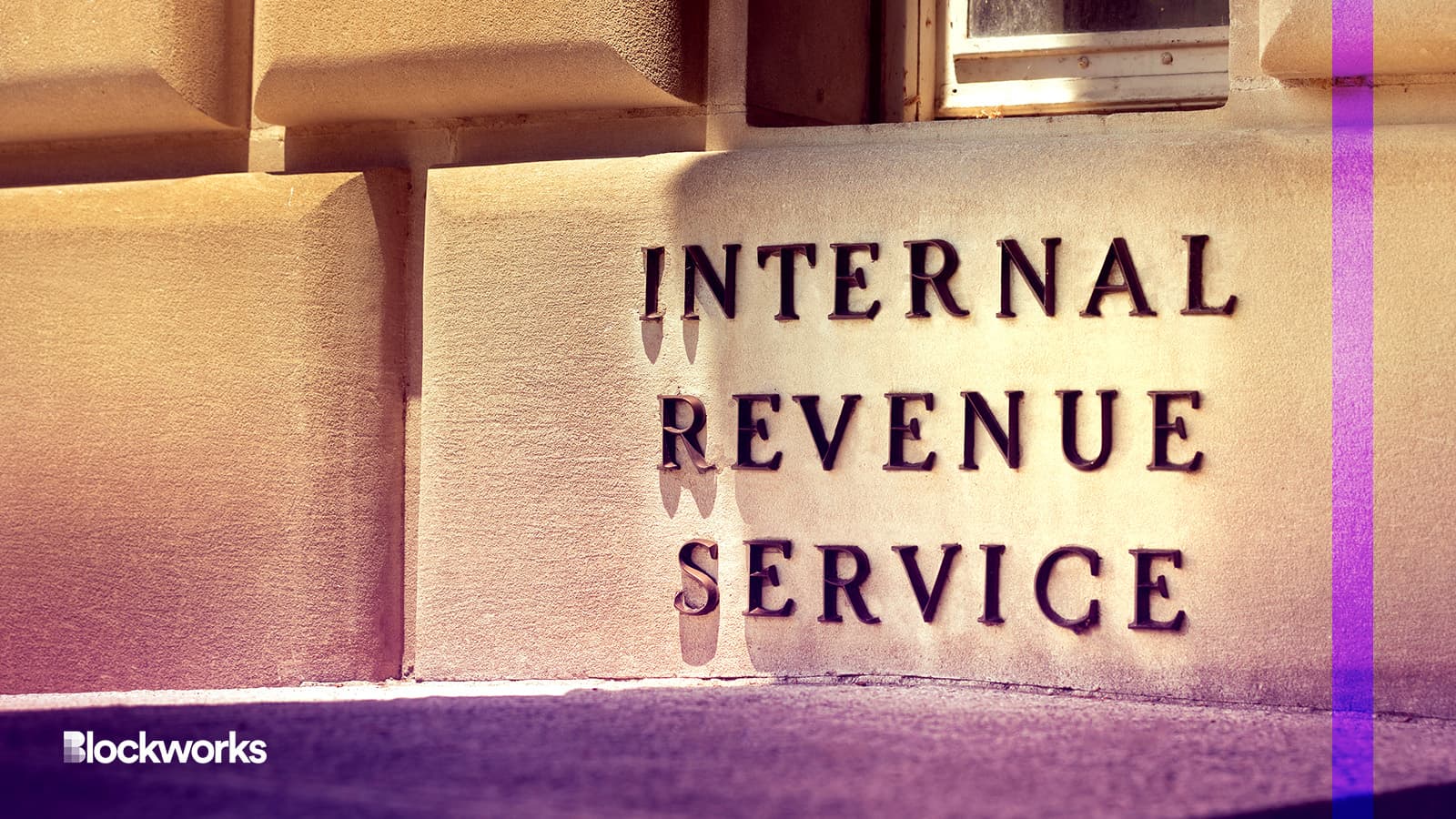With government contracts coming in, Node40 eyes expansion
The crypto accounting firm is looking to expand beyond its core business lines

AevanStock/Shutterstock modified by Blockworks
With the crypto regulatory landscape “drifting toward clarity,” Node40 is branching out beyond its core business of crypto accounting, according to the company’s founder and chief executive.
While the Big Four accounting firms work to get their crypto operations in order, to the extent they have and maintain them, Node40 CEO Perry Woodin told Blockworks “the most difficult part” in plotting the company’s roadmap is “the focus.”
For the company, it’s not a narrowing of focus on one key area, but an expansion that’s been in the works. The crypto accounting firm, in other words, sees itself as more than a crypto accounting firm in an uneasy US taxation environment.
“We’re looking at additional verticals,” Woodin said. “Phase one for the company is to focus on accounting firms, but there’s so many verticals out there besides tax and advisory.”
To that end — and bolstered by a recent strategic investment of $4 million by Gary Cardone’s Card1Ventures — Woodin said the firm is readying a weighty push into stepping in with outsourced compliance solutions as the SEC’s oversight of the industry has continued to set off alarm bells. It’s the second $4 million investment by Card1Ventures, with the first taking place in March.
Cardone told Blockworks that Node40 is “in the richest vein of need, because most accounting firms are not prepared [and] haven’t made the investment necessary” to compete in crypto.
“There is no time to build these now,” Cardone said. “This is a solution that has been five years in the making. IRS, Interpol, they don’t have the time, the luxury to go build this. It needed to be invested in and built prior.”
Node40 has already been engaging in a number of government contracts — wherein government agencies pay out contracted crypto tracing work via RFPs — Cardone said. Those business lines, plus funding, ought to let the company consider “merging [or acquiring] firms who are doing slightly similar things, but can maybe address the enforcement community in a different way.”
Cardone, who has been vetting other crypto companies for potential investments in a bid to beat out “analog companies that can’t adapt with digital divisions,” has invested in traditional fintech for some time. He has been sued by the CFTC in a lawsuit stemming from another one of his companies, Chargebacks911, which was not a crypto business. He has denied the allegations.
Cardone has positioned Node40, including its specialization in blockchain node operations, as innovating off of outdated business practices.
One likely area of expansion for Node40 is fund administration, Woodin said. He noted that this can be a tricky proposition for crypto asset managers trading DeFi products or taking on the likes of illiquid venture capital stakes and participating in private token sales.
Fund administration requires some of the same skills as auditing in terms of calculating how much a crypto asset is worth in fiat at a given time. Node40 concentrates on setting up software solutions for tax purposes, in addition to its other business lines — as opposed to a traditional accounting firm, which focuses on one-off tax preparation and transactions for individual clients, individual or corporate.
Accountants need crypto tools
Node40, Woodin said, counts accounting firms among its own clients.
“Any accounting firm is really a service-based firm,” he said. “They may have some technology in-house that they use. They’re not building out technology to meet the needs of their clients. They want to focus on service. They want to be able to focus on providing value to their clients. All they want is the tools to be able to do that. We’re a tool for them.”
The company has had to contend with a growing number of crypto-based financial instruments, including calculating links to real-world assets (RWAs), which Woodin described as a treadmill of sorts to keep up with. They’ve set up a structure that taps “subject matter experts,” to onboard new types of smart contracts when they come out, he said.
Back in March 2015, Woodin said he and his co-founder started getting into staking, when New York’s NYDS crypto regulation standards started getting off the ground.
The two established a meticulous Excel file system to track the value of staked crypto assets — eventually coming around to thinking there must be a more efficient way to ensure compliance with less time involved.
The IRS, as well as other federal agencies in the US, have evolved significantly since in terms of their prowess with tracking crypto transactions, he said.
“Don’t underestimate what the IRS understands about crypto,” he said. “Their ability to take on cases might be very limited, but once you get to the point where there’s a criminal investigation, they have the best and brightest working on those.”
A number of divisions at major accounting firms, according to Cardone, are taking “between 300 and 500 hours to do one profile, one tax ID” for a “complex, wealthy player” with substantial crypto holdings.
“It’s not sustainable,” he said. “It’s really about using technology to not allow this new world to basically become paused or slowed down because people can’t keep up — track, trace, do forensics.”
Get the news in your inbox. Explore Blockworks newsletters:
- The Breakdown: Decoding crypto and the markets. Daily.
- 0xResearch: Alpha in your inbox. Think like an analyst.






